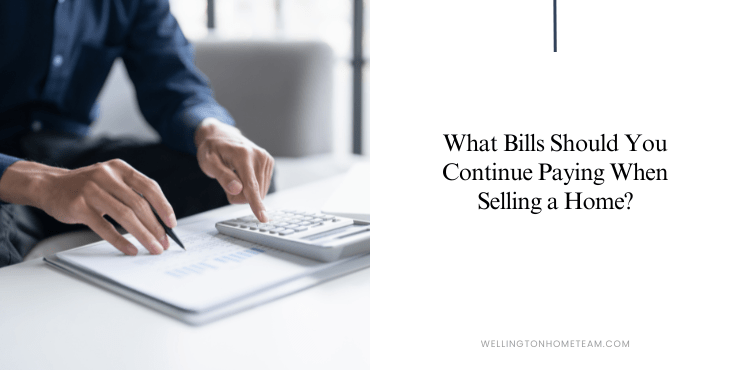What Bills Should You Continue Paying When Selling a Home?
Selling a home can be an intricate process filled with various decisions, including understanding which bills must continue to be paid until the sale is finalized. This article will guide you through the essential bills you should keep up with during the home-selling process to ensure a smooth transaction.
7 Essential Bills to Keep Paying When Selling Your Home
1. Mortgage Payments
One of the most critical bills to continue paying is your mortgage. This obligation doesn’t just disappear because the home is on the market. Missing a mortgage payment can adversely affect your credit score, incur late fees, and even risk foreclosure. If you have a grace period, it’s best to remain cautious. For instance, if you plan to close on the 3rd of the month, opting not to pay on the 1st might seem tempting, but such a decision carries risks if closing is delayed. Learn more about mortgage payments here.
2. Property Taxes
Keeping up with your property taxes is equally essential. Most homeowners pay these bills quarterly, annually, or as part of their mortgage. If you pay directly, ensure you stay current to avoid liens that could hinder the sale. While your taxes may be prorated at closing, you remain responsible for them until the sale is complete. Find more tips on property taxes here.
3. Utilities
Utilities should remain active throughout the selling process. Imagine showing a home without electricity or running water — not ideal. Keeping these services operational also facilitates home inspections. After the closing, cancel your utilities to avoid unexpected charges, ensuring the buyer has transferred them into their name seamlessly. Check out this guide on managing utility bills while selling.
4. Homeowner’s Insurance
Maintaining your homeowner’s insurance is crucial until the buyer assumes ownership. If anything happens to the home during the selling process—be it storm damage or vandalism—you’ll need this coverage. Don’t be tempted to cancel your insurance prematurely; doing so leaves your property vulnerable. Explore options for homeowner’s insurance.
5. HOA Fees
For properties governed by a homeowners association (HOA), it’s necessary to keep paying those dues. Failing to pay can lead to fines or liens, complicating the sale. Typically, HOA fees are prorated at closing, but ensuring all payments are up-to-date is vital. If finances are tight, communicate with your HOA about potential options. Learn how to navigate HOA fees here.
6. Maintenance Costs
Continue paying for any maintenance services you have, such as pest control or landscaping, especially if your home sells during peak seasons. Communicate with your service providers about stopping services after closing, but during the sales process, it’s critical to maintain curb appeal. Get insights on maintaining your property.
7. Repair Costs
If you’ve hired a contractor, stay on top of payments to avoid the risk of a lien on your property. If you’ve agreed to pay any contractor out of the closing proceeds, ensure you have this documented to avoid complications later down the line. Find tips on dealing with contractors here.
Bills You Can Stop Paying
While certain bills are essential to keep active, others can be shut off when selling your home:
- Internet
- Cable
- Landline Phone
- Dish TV Services
- Home Security System
- Delivery Services (like water)
Common Billing Questions When Selling a Home
-
Is a new homeowner responsible for previous utility bills?
No, typically, new homeowners are not liable for past utility bills when they establish their own accounts. -
How do utilities work when selling a house?
Sellers should keep utilities on until the sale closes; afterward, they can have them turned off. -
Can I expect a refund for prepaid property insurance premiums?
Yes, unused portions of insurance premiums are often refundable and prorated based on cancellation dates. -
When should I cancel my homeowner’s insurance?
Notify your provider once the transaction closes, providing the closing statement as necessary. - What happens to prepaid utilities?
Refunds for prepaid utilities or arrangements for reimbursement to the seller for portions used after closing are generally detailed in the sales contract.
Final Thoughts
Navigating the financial obligations of selling a home can be daunting, but understanding which bills to prioritize can alleviate a lot of stress. Staying current with your payments until the closing day ensures a smoother transition and helps you avoid complications that unpaid bills might bring.
For additional support during your home selling journey, consider consulting a local expert or real estate professional to guide you through the intricacies of the process.


